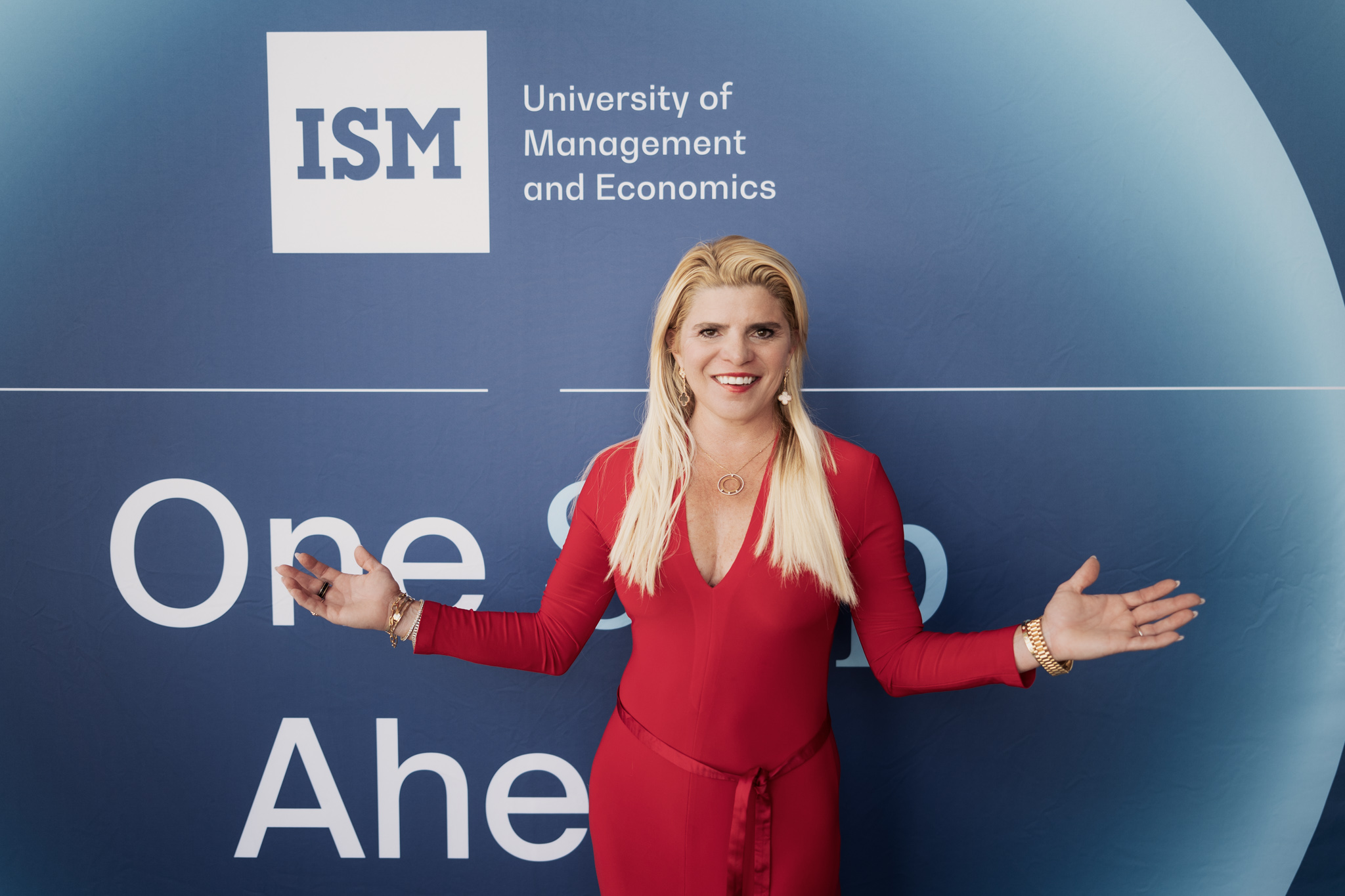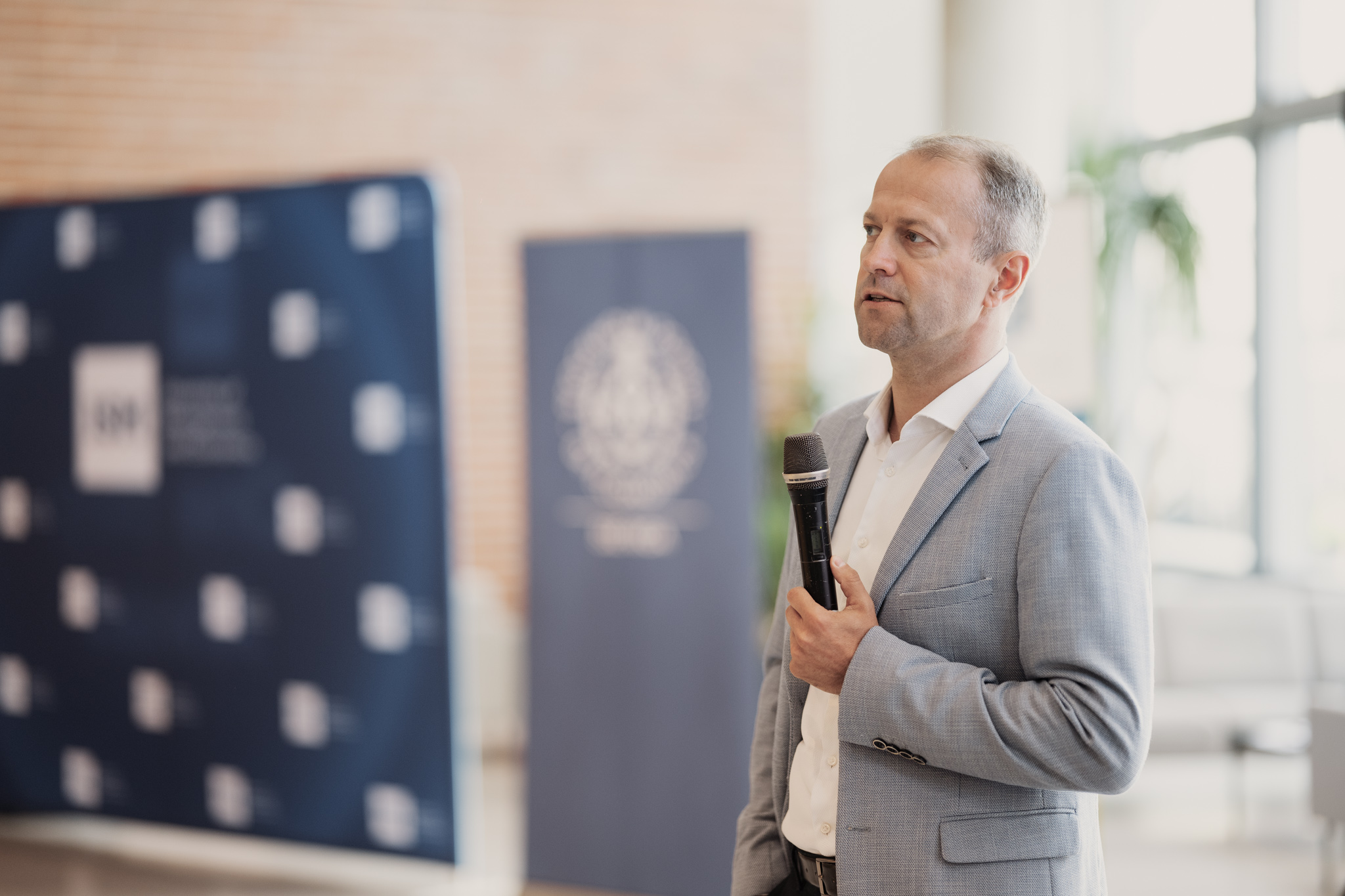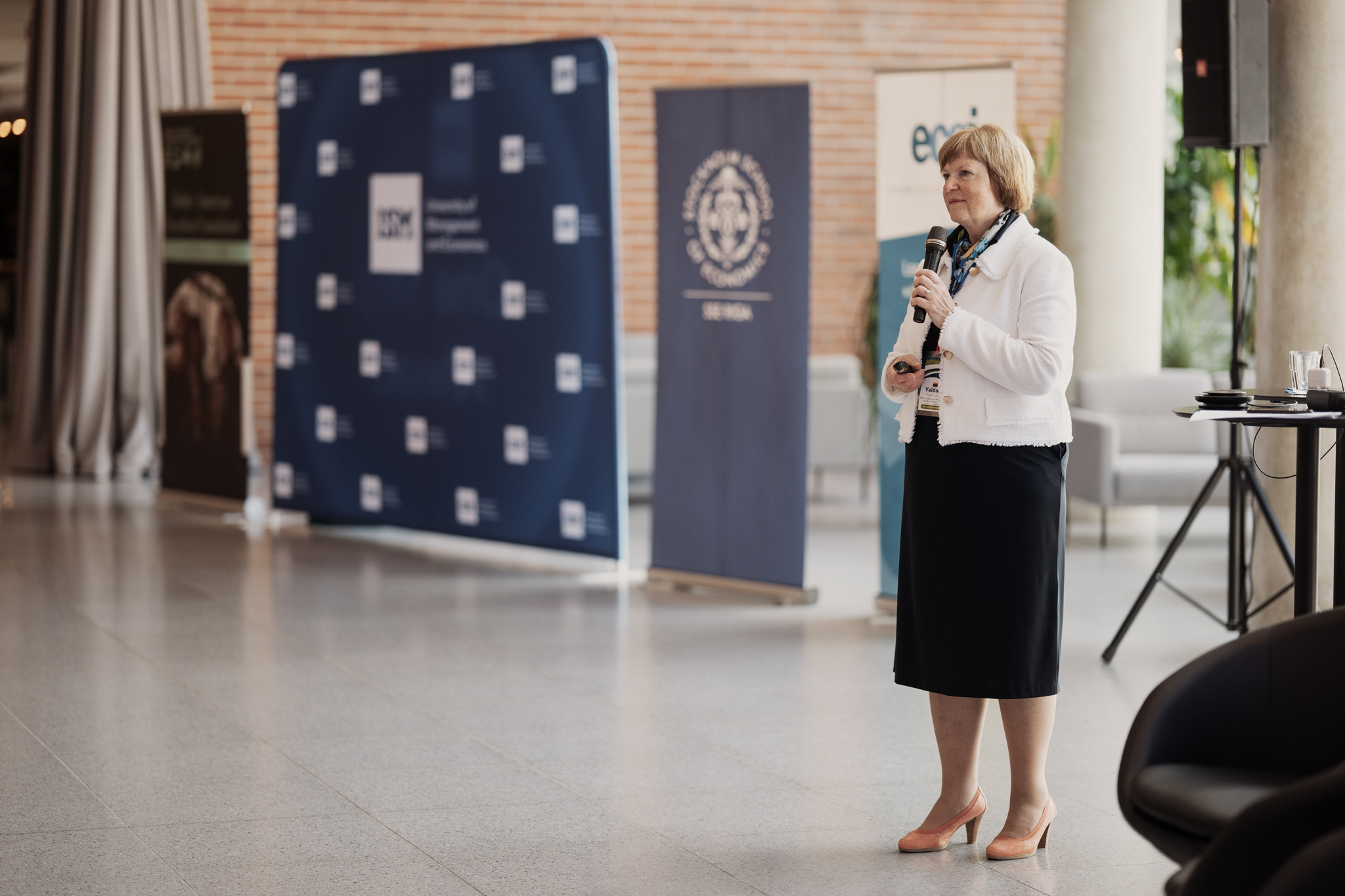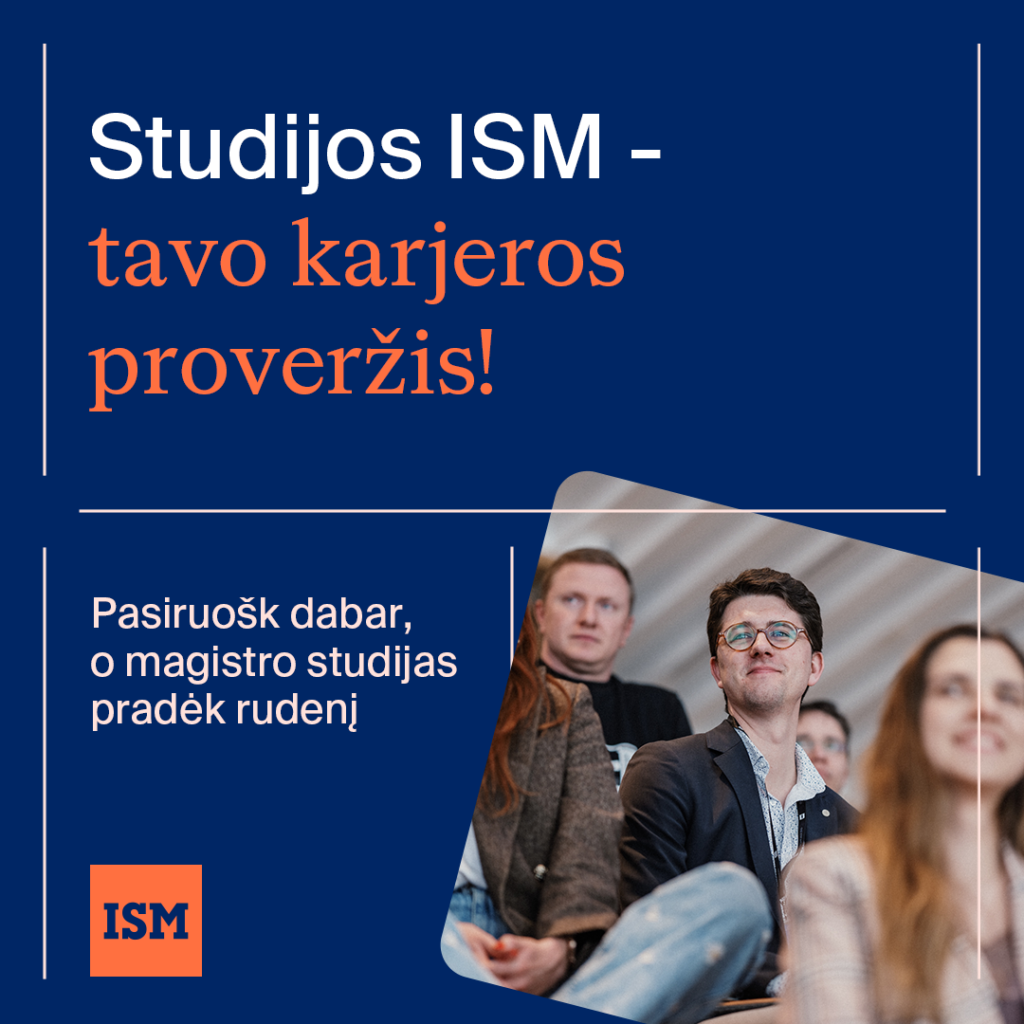Are you looking to build a business that stands strong despite economic challenges, effectively solves business dilemmas, and is appreciated by consumers? If so, start a family business. In times of crises, family businesses remain more resilient compared to others. Research shows that family-run companies outperformed other business model companies in the economic crises of 2008-2009 and during the pandemic.
„Family business, private citizens and private industry are better at solving problems and creating impact than governments, so government should help, not hinder, private business and investment.“, – says Christina R. Wing, a Harvard Business School professor who advises family businesses.
She participated in the conference “The role of family businesses in the context of long-term sustainability” held on June 12-13 at the ISM University of Management and Economics in Vilnius and gave a presentation on the role of family offices.

Currently, we do not have a well-established legal concept of family business in Lithuania, there is a lack of understanding of business practices and evaluation of the efforts required to maintain the company from generation to generation. Experienced academics from the world’s most famous business schools in the USA, Scandinavia, and the Baltic countries, practitioners, family business consultants, and business representatives gathered at ISM University to discuss and analyze the unique field of family business. One of them was Andrius Kurganovas, the manager of “Biržų duona”, who took over the bakery business from his parents and elevated it to a new level. He shared his valuable experience during the discussion. The organizers of the first Baltic conference for family businesses in Lithuania hope that the event was successful not only in bringing together representatives of family businesses and providing them with practical knowledge but will eventually lead to changes in the legal system.

The Future of Family Businesses According to Harvard Business School
A 2023 study by the consulting company “PwC” found that in Central and Eastern Europe more than 60 % of family businesses are managed by the first generation and only a little more than 30% are run by the second or subsequent generations. According to the rector of ISM University, Dr. Dalius Misiūnas, in Lithuania we are only starting to develop family business management practices, which is why adopting the USA’s and other countries’ experience is particularly relevant. “Most family businesses in Lithuania still belong to the first generation, so experience and maturity are still developing. However, I believe that in the future we will see examples of extremely successful Lithuanian family businesses. Of course, there will be quite a few who will disappear or leave the hands of the family”, the rector says.

ISM lecturer, economist prof. Valdonė Darškuvienė, a co-founder and board member of the Baltic Family Business Institute, distinguished two aspects of family business’ future. They are both positive and should inspire existing businesses and people planning to start their own companies. According to prof. V. Darškuvienė, one of the organizers of the Baltic family business conference, “The competitiveness of family businesses whose business ideas have been time tested can be maintained in the long term, they are durable. Businesses managed by such Lithuanian families have the potential to grow, establish themselves in international markets, and compete successfully on a global scale. On the other hand, a strong entrepreneurship spirit is likely to continue supporting the trend of establishing family businesses, responding to local and regional needs”.

The most promising are the family businesses that can change, adapt to circumstances, introduce new management standards, and maintain a unified mission. Conference guest from Harvard Business School Ch. R. Wing states that in order to succeed, family businesses must define a mission based on shared values. „Ask yourself – why does the business exist and what is the legacy the family is looking to create with the business? Having some sort of guiding star is essential for family cohesion, long-term planning, and strategy“, – the scholar says. However, a nice-sounding mission alone is not sufficient. Growing family businesses must have well-established management structures, the lecturer from the USA explains. The third criterion needed for a successful family business, according to Ch. R. Wing, is a clear succession plan. „Many families put off this last aspect because it involves difficult conversations over mortality as well as who is “deserving” of inheriting the business. But it’s a conversation you have to have early on, or else uncertainty will hover over everything. It is never too early to think about succession in a family business, and there should be both an ideal plan AND an emergency, backup plan. “, – the professor at Harvard Business School advises. She is most fascinated by family businesses that can influence society and respond to vulnerable social groups.
More sustainable business principles can be both a unifying goal and a way to help the community. Some of the family businesses operating in Lithuania point out sustainability as their uniqueness. However, as noted by the researcher-predecessor of the organization management discipline, dr. Dennis T. Jaffe, who spoke at the conference about century-old family businesses, successful company needs a purpose that is relevant to all generations. “If they do not share this meaning and purpose, they will not be able to exert the time and energy needed to make it happen. If they are not aligned they will face conflict and disagreement that will take their focus away from the business. For many in the rising generation sustainability and the future of the planet are guiding principles that cannot be compromised“, – warned Dr. Jaffe, who has been working with family businesses for more than 40 years.

Study Programmes Focused on Family Business
The topic of family business naturally became an integral part of ISM study programmes. Business leadership, business strategy development, international marketing, and financial strategic decisions are particularly important in growing a family business from a small regional one to one that competes successfully internationally. ISM University has also developed a specialized programme for family businesses, designed to analyze and evaluate both traditional financial investments and non-traditional investments (alternative, art, fine drinks, and other luxury goods markets).
“We see this conference as an important recognition of ISM University: family business researchers and practitioners from the USA, Scandinavia, and the Baltic countries meet at our place. I do not doubt that this important business world event will bring us a breath of fresh air and will give family businesses in the Baltic countries new operational impulses and encourage them to aim even higher,” rector Dr. Misiūnas says, adding that the organization of a conference of this level confirms that the path chosen by the university to strengthen the topic of family business in its studies was a correct one.
The family business model is characterized by crisis resistance and continuity. “Nurturing and passing down family values from generation to generation is often a decisive factor ensuring the longevity of a business,” reveals Professor Darškuvienė. Paradoxically, longevity requires change. “The world will be a new place and many of the things we assumed in the past will no longer be true“, – says Dr. Jaffe about the dynamics of family businesses. He emphasized that family business leaders must be able to innovate and change, not just continue what has been done before. Other family businesses’ knowledge and practices can help sustainable development, enable the company to reach a wider audience and make a difference.
Organisers: The Baltic Family Firm Institute (BFFI), ISM University of Management and Economics (ISM), the European Corporate Governance Institute (ECGI), and Rīgas Ekonomikas augstskola – Stockholm School of Economics in Riga.
This programme is made possible by funding from the Baltic-American Freedom Foundation (BAFF). For more information about BAFF scholarships and speaker support, visit www.balticamericanfreedomfoundation.org




